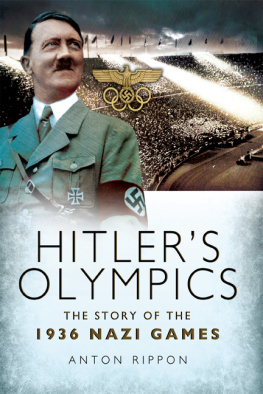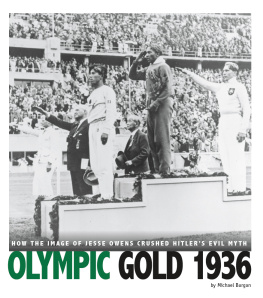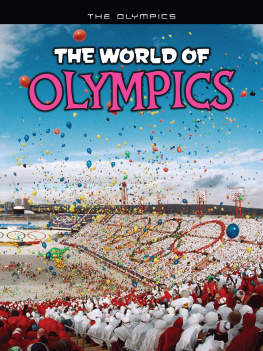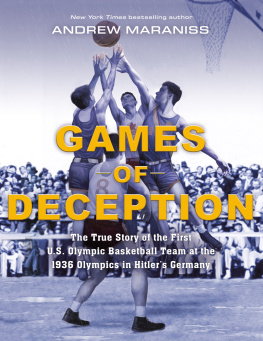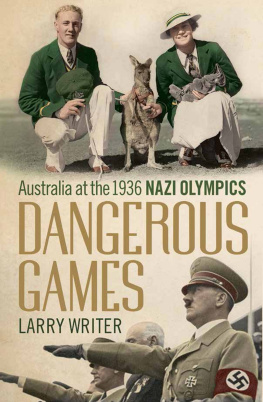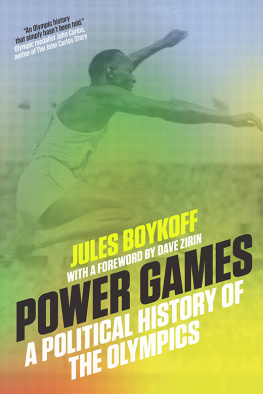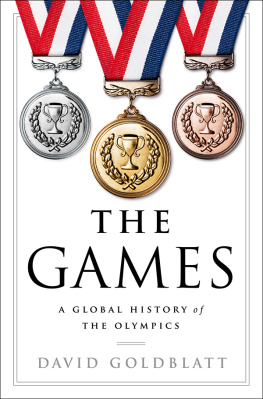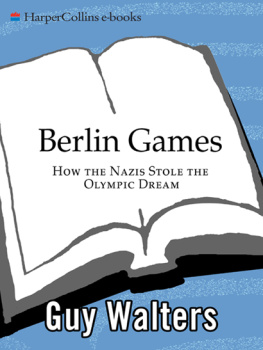

Huge crowds gather in a flag-decked Hauptstrasse. ( Authors collection )

First published in Great Britain in 2006
and reprinted in this format in 2012 by
Pen & Sword Military
an imprint of
Pen & Sword Books Ltd
47 Church Street
Barnsley
South Yorkshire
S70 2AS
Copyright Anton Rippon 2006
ISBN 1-84415-444-0
ISBN 978-1-84415-444-9
ISBN 9781844683833
The right of Anton Rippon to be identified as Author of this Work has been asserted by him in accordance with the Copyright, Designs and Patents Act 1988.
A CIP catalogue record for this book is available from the British Library
All rights reserved. No part of this may be reproduced or transmitted inany from or by any means, electronic or mechanical including photo-copying, recordeing or by any information storage and retrieval system, wothout permission from the Publisher in writing.
Typeset in 11/13pt Palatino by
Concept, Huddersfield
Printed and bound in England by
Biddles Ltd
Pen & Sword Books Ltd incorporates the Imprints of Pen & Sword Aviation, Pen & Sword Maritime, Pen & Sword Military, Wharncliffe Local History, Pen and Sword Select, Pen and Sword Militory Classics and Leo Cooper.
For a complete list of Pen & Sword titles please contact
PEN & SWORD BOOKS LIMITED
47 Church Street, Barnsley, South Yorkshire, S70 2AS, England
E-mail: enquiries@pen-and-sword.co.uk
Website: www.pen-and-sword.co.uk
I NTRODUCTION
When the International Olympic Committee met in Barcelona in April 1931 and recommended Berlin as the stage for the 1936 Olympic Games, they awarded them to a democracy. By the time those Games got under way five years later, Germany was in the grasp of a fascist dictatorship and the Olympics had been delivered into the hands of one of the most evil regimes the world has ever seen.
With the benefit of seventy years hindsight, it is clear that the Nazis achieved a remarkable propaganda coup in 1936. They persuaded the International Olympic Committee and several governments albeit fairly apathetic ones that they could stage a fair and free Olympics. And having been allowed to keep the Games, they indulged in a few cosmetic measures removing anti-Jewish posters for a couple of weeks; ordering their followers to be pleasant to foreigners even if they looked like Jews which sent most people away with a fairly relaxed view of life in the Third Reich. Visitors went home blissfully unaware that a few miles from the Olympic Stadium a new concentration camp had just been opened. While spectators enjoyed the great athletic spectacle, just a short train ride away, Jews, gypsies, Communists and other enemies of the Nazi state languished with no hope and no future.
Even though Adolf Hitler would surely have proceeded along his chosen road regardless, there is little doubt that staging the 1936 Olympic Games was an important episode in his march which ultimately led the world to another great war.
What follows is an account of the Berlin Olympics: the battles that were fought to prevent them; the extreme measures that were taken to ensure that they went ahead. There are, of course, also the stories of some heroic athletic performances along the way.
But whatever the verdict of history on the IOCs decision made that spring day in Catalonia, one thing is irrefutable: the nature of international sport would be forever changed after 1936; never again would it be possible to successfully argue that sport and politics can be separated. Hitlers Olympics saw to that.
Anton Rippon
Derby, 2006
A CKNOWLEDGEMENTS
A list of principal sources can be found at the back of this book; my thanks go to others before me who have chronicled the many varied aspects of the 1936 Olympic Games. Particularly important have been the learned essays that have appeared in the International Journal for the History of Sport and the Journal of Sport History. Ottavio Castellini, Statistics and Documentation Senior Manager for the International Association of Athletic Federations was always ready to confirm, or otherwise, the myriad of information concerning athletics records and performances. Constantine E. Zervos and Holly Read of the US National Archives, and Joe Milazzo, Librarian at the Government Information and Map Resources, Central University Libraries, Southern Methodist University, have been prompt in responding to queries and the staff at various newspaper libraries have been enormously helpful. The photographs in ).
Chapter One
T HE M OST E VIL P LACE
On the damp and breezy Saturday of 23 May 1931, Jesse Owens, a 17-year-old African-American student from East Technical High School in Cleveland, arrived at Ohio State Universitys athletic field in Columbus to compete in his first state scholastic track and field meeting. That afternoon, Owens, the second youngest of eleven children of an Alabama sharecropper, set a new scholastic long jump record, finished second in the 200 yds, and fourth in the 100 yds; it was a modest start but eventually they would name the stadium after him. Ten days earlier, the International Olympic Committee had confirmed that the 1936 Summer Games would be staged in Berlin. Later in 1931, Adolf Hitler would challenge Paul von Hindenburg for the presidency of Germany. The ingredients for a sporting event of legendary proportions were shifting into place.
When, on 13 May 1931, the IOCs recommendation was confirmed by forty-three votes to sixteen nineteen nations voted at the meeting, forty by postal ballot, with eight abstentions to choose Berlin ahead of Barcelona, the Weimar Republic, born out of the chaos of Germanys defeat in the First World War, was still the countrys democratic government; albeit a fragile one beset by seemingly insurmountable problems of hyperinflation, business failures, crippling reparations and the growth of extreme parties. Two years after the IOC had welcomed Germany back from international isolation from the end of the war until 1928 they had been banned from even participating in the Olympics one of those extreme parties engineered a major political change there. On 30 January 1933, in an attempt to stave off a political crisis, President von Hindenburg appointed Hitler, leader of the National Socialist German Workers Party, as the countrys new Chancellor. The Germany that won the Olympic Games was not going to be the same Germany that would eventually stage them.

Adolf Hitler in a suitably dynamic pose for the man who saw himself as Germanys saviour. Millions of Germans agreed with him. ( Illustrated London News )
The conditions that were absolutely perfect for the rise of a man such as Adolf Hitler have been documented perhaps a million times. The Treaty of Versailles, drawn up by the victorious Allies in June 1919, had dismantled the vanquished German empire of Kaiser Wilhelm II. The geography of Europe was redrawn as Germany was made to suffer large territorial losses. In all it lost one million square miles of land 28,000 of them in Europe and six million subjects. The Treaty blamed Germany for the war and dictated that reparations, eventually set at 6,600 million, would be paid in monthly instalments. In addition the Germans had to rebuild their economy but the loss of their colonies, and land ceded to other countries, deprived them of rich sources of raw materials. The political impact in Germany itself was enormous. The government of the day refused to sign the Treaty and resigned. The incoming administration had no choice but to agree. And as the economy collapsed and many old soldiers wondered how Germany could have lost the war when they had still held French territory taken at the very outset in 1914 the argument that it was the politicians, not the military, who had been responsible for national humiliation gained huge support. Soon, millions distrusted the Weimar Republic in all its manifestations. Even after it had been awarded the Olympic Games, Germany was still the outcast in wider world affairs. Germans were desperate for a strong leader; Hitlers time was drawing near.

